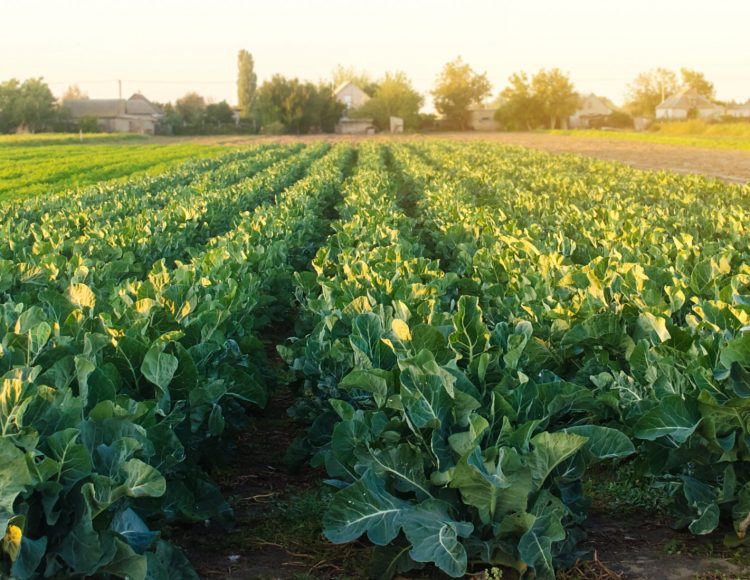Why do plants need fertiliser?
Fertilisers are necessary to renew soil as plants naturally absorb nutrients in soil over time. They are especially necessary for commercial farming, as this often removes plants completely from the soil, preventing them from decomposing and recycling nutrients back into the ground. Without fertilisers, soil can end up low in nutrients and produce plants which grow less well.
Soil also needs a healthy amount of microorganisms which play a crucial role in the plant cycle. These help break down decomposing plants and replenish the three main nutrients plants need to grow: nitrogen, phosphorus and potassium. Microbes also play a part in helping the environment as they help retain CO2 in the soil, reducing the amount of CO2 released back into the atmosphere. Just over three times the amount of carbon is stored in soil than in the atmosphere!
What different types of fertiliser are there?
There are three general types of fertilisers: mineral fertilisers produced from mined minerals such as phosphorous and potash; organic fertilisers made from organic materials such as bone or leaves, and industrial fertilisers, which are made by chemical
reaction.
Fertilisers are made to cover the three main nutrients for crop growing and are known as NPK fertilisers, because they contain nitrogen (N), phosphorous (P) and potassium (K). The NPK ratio needed from a fertiliser will depend on the crops being grown and the quality of the soil from which the plants will draw their nutrients.
Which products are available to growers?
People who want to grow plants without using chemicals often choose blood, fish and bone fertiliser. This is an organic fertiliser literally made from blood and bones ground up into a powder. While blood, fish and bone is considered a good fertiliser as a natural source of all three major nutrients, its main components are by-products of the slaughter industry and leftovers from fish processing plants. Its use, therefore, might cause concern for vegetarians and vegans looking to avoid animal-based products.
One frequently used replacement for blood, fish and bone fertiliser is Growmore. This is a chemical fertiliser first invented during World War Two that provides equal amounts of all three main nutrients. However, blood, fish and bone is more preferable to Growmore due to its slower release of nutrients, allowing plants to take them up more efficiently. Growmore stays in the soil for only seven to 10 days, while blood, fish and bone fertiliser lasts for between four and six weeks.
How do veggie and vegan fertilisers compare?
Most vegetarian and vegan fertilisers have an NPK ratio that is much lower than Growmore. Organic fertilisers release their nutrients more slowly as they are broken down by bacteria in the soil. However, chemical fertilisers like Growmore are faster acting than organic fertilisers, making them a better choice if plants are low in nutrients and need treating urgently.
Organic fertilisers are available which you can combine to give the same NPK ratios as blood, fish and bone fertilisers. As most organic sources are only rich in one or two of the three main nutrients, combining different products can give you the right balance of nutrients. There are also a few pre-packed vegetarian fertilisers which are easy to find on the market.
Are organic fertilisers the best option then?
While fertilisers are extremely helpful for growing plants, the mass use of synthetic fertilisers containing high amounts of nitrogen and phosphorus has had a damaging effect on the environment. Problems known to be caused by synthetic fertilisers include causing higher than normal growth of algae, making it a toxic hazard to fish and marine life, and contributing to a higher mortality rate among bees.
Fertilisers aren’t the only way to help soil maintain nutrients and keep plants growing healthily. Before the 19th century, most farmers fertilised crops using more basic organic techniques, such as using manure or planting legumes with nitrogen-fixing bacteria in their roots. Meanwhile, greater awareness of environmental issues has made growers consider returning to more nature-friendly ways of growing.
While blood, fish and bone is one alternative to synthetic fertilisers, vegetarians can rest assured that there are plenty of other adequate fertiliser options out there.
Sources
1 Soil Carbon Storage TA Ontl https://www.nature.com/scitable/knowledge/library/soil-carbonstorage-84223790/
2 Our Nutrient World report. Prepared by the Global Partnership on Nutrient Management Global Overview on Nutrient Management in collaboration with the International Nitrogen Initiative wedocs.unep.org/handle/20.500.11822/10747
3 Copper sulfate found to be toxic to stingless bees, 2016 – www.sciencedaily.com/releases/2016/04/160412110002.html

